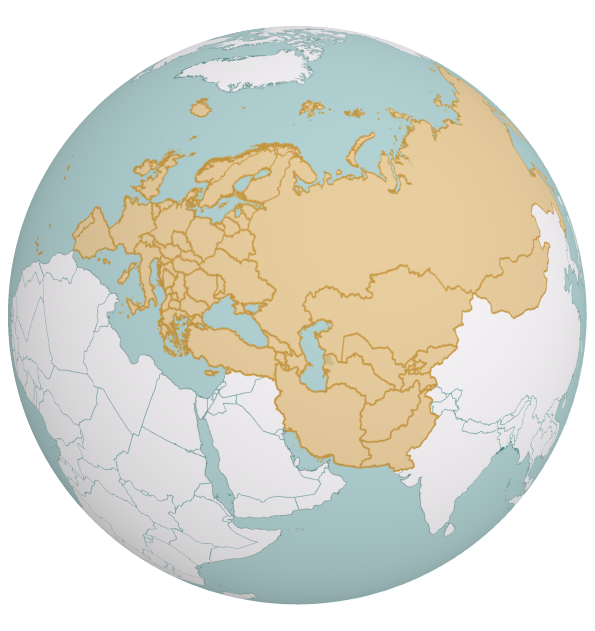Here is a small summary of major geopolitical events
of October 2022 in the Eurasian space…
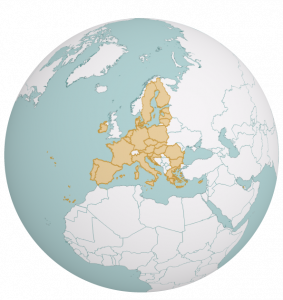 European Union : From increased support for Ukraine to the crisis in the Franco-German relationship.
European Union : From increased support for Ukraine to the crisis in the Franco-German relationship.
On October 5, 2022, the European Union adopted its 8th package of sanctions against Russia, a damage for this country estimated at 7 billion euros by the EU, in retaliation for the recent “annexation” by Russia from 4 regions of southern and eastern Ukraine (Kherson, Zaporizhia, Lugansk and Donetsk), voted through referendums not recognized by Kyiv and “Western” states. Decisions have been taken with the agreement of initially reluctant countries such as Cyprus, Malta and Greece: capping the price of Russian oil, progressive embargo on Russian oil transported by pipeline, banning the transit of Russian oil by sea above of a certain price. In addition to these measures, there is a ban on the export of technologies used by the Russian military sector and restrictive measures on certain imports from Russia. On October 13, the Parliamentary Assembly of the Council of Europe adopted a resolution describing the Russian regime as “terrorist”, with 99 votes in favour and one abstention.
The European Commission finalized on October 18 the energy shield of Europe (REPowerEU), presented by its President Ursula Von der Leyen, without however finding consensus between the Member States on its precise methods of implementation: capping of certain price, joint purchase of gas using 44 billion euros from unused cohesion funds over the period 2014 – 2020.
October 6 marked the first meeting of the European Political Community in Prague, an initiative launched by French President Emmanuel Macron, to which 17 countries were invited in addition to the 27 Member States. A meeting without the presence of Russia, marked by the call of Ukrainian President Volodymyr Zelensky to “punish the aggressor” but whose stake was also, in the presence of Liz Truss, the British Prime Minister who resigned on October 20 (continued the shortest 44-day term in Britain’s history) and that Rishi Sunak replaced 5 days later, relations between the United Kingdom and the EU, or in the presence of Turkish President Recep Tayyip Erdogan, Turkey’s place in Europe as a whole and whose candidacy has been blocked for more than 10 years.
The end of the month was marked by a crisis in the Franco-German relationship as the meeting between the two leaders Olaf Scholz and Emmanuel Macron took place at the Élysée Palace on October 26, postponing the initial meeting scheduled for October 19. The current differences relate to the German announcement without consultation of a 200 billion euro aid plan for individuals and businesses and for which France fears a distortion of competition in Europe, the French opposition to the gas pipeline project MidCat-STEP between Spain and France, or even the German purchase of around thirty American F35 fighter planes favoured over the Rafales produced by Dassault and despite the cooperation of the two countries within the framework of the SCAF project (Future Air Combat System), or the French opposition to the anti-missile shield project with an Israeli component (European Sky Shield Initiative) acclaimed by Germany, 10 European countries belonging to NATO and Finland. It is also the question of the enlargement of the EU which divides the two heads of state, Emmanuel Macron wishing a reform of the functioning of the EU beforehand.
Of note on October 17 was the election of conservative Ulf Kristersson as Prime Minister of Sweden following the victory of the right-wing and far-right coalition in the parliamentary elections of September 11, thus marking new government priorities: revival of nuclear energy, fight against crime and immigration, end of the “feminist foreign policy” and priority given to NATO membership still blocked by the Turkish authorities. In Austria, the federal presidential elections resulted in the renewal of the mandate of the outgoing ecologist candidate Alexander Van der Bellen on 9th October. The legislatives elections in Bulgaria on October 2 were won by the GERB party of former Prime Minister Boyko Borissov, whose mandates have been marred by corruption scandals.
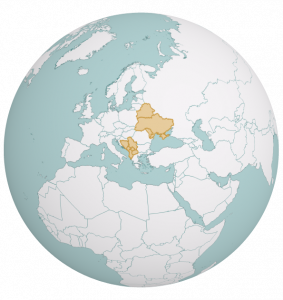 Eastern Europe : Winter fixation of the front line in Ukraine and isolation of Serbia.
Eastern Europe : Winter fixation of the front line in Ukraine and isolation of Serbia.
The beginning of October was marked by substantial territorial gains by Ukraine following its counter-offensive, Volodymyr Zelensky declaring on October 1 that he had regained 500 km2 in the south of the country around Kherson, i.e. 29 localities, and the army having regained most of the Kharkiv region in the north-east and the strategic areas of Izium, Kupyansk and Lyman in the east. However, the Russian bombardments were felt in many Ukrainian cities from October 10: in kyiv and the surrounding region while the regions of Lviv, Kharkiv, Odessa, Dnipro, Ivano-Frankivsk, Ternopil, Khmelnitsky, Konotop, Rivne and Poltava were also hit by missiles. Similarly attacks against energy infrastructure took place in Kyiv, Rivne, Khmelnitsky, Ternopil, Konotop, Zhitomir, Lviv and Kharkiv. According to the Ukrainian authorities, for the single day of October 10, 83 missiles would have been fired, half of which would have been intercepted, and 11 infrastructures would have been affected, completely depriving 5 regions of electricity. A Russian offensive in response, according to Vladimir Putin, to the attack on the Crimean bridge on October 8.
The members of the G7 (Germany, Canada, United States, France, Italy, Japan, United Kingdom) decided on October 11 in an emergency meeting by videoconference to provide Ukraine with “financial, humanitarian, military, diplomatic and legal support […] as long as it takes” while announcing new sanctions to come while the Ukrainian president has requested the supply of the SAMP-T anti-aircraft defence system from France and from Italy. It should be noted that on October 22 the German Ministers of Foreign Affairs (Greens) and of Defence (SPD) asked the Minister of Finance to triple military aid to Ukraine.
However, the first convoys comprising 9,000 Russian soldiers arrived in Belarus on October 15, and on October 28 the fighting, described as “fierce” by the Ukrainian president, continued in the Donetsk region, near Bakhmout, where the army would have gathered to build a line of defence in anticipation of the winter, and Avdiïvka located 50km further south.
It should be noted that on October 6 Washington revealed the involvement of the Ukrainian government in the assassination of Daria Duguina, following a CIA investigation, without being able to specify which were the precise centres of power concerned, but confirming the suspicions issued by the Russian side in respect of Ukrainian citizen Natalia Vovk who fled via Estonia.
On the Balkan side, a direct consequence of the 8th package of European sanctions, the European Commission has blocked imports of Russian oil into Serbia, a candidate country for the EU since 2012 but which has not aligned itself with the sanctions against of Russia, by blocking the Croatian port terminal of Omisalj, on Croatia’s initiative, which put an end to the derogations from which Serbia was to benefit and increased tensions between these two neighbours. On October 14, it was the meeting of European interior ministers who urged Serbia to align its visa policy, considered too flexible, with that of the EU, in order to avoid borrowing of the Western Balkan migration route to join the EU, while the Czech Presidency is currently promoting the concept of “flexible responsibility” in the context of a new proposal on the reform of the EU’s migration and asylum policy EU. The following day, October 17, Serbian President Aleksandar Vucic announced the construction of a 128 km pipeline between Novi Sad and Algyo in southern Hungary, an extension of the Druzhba pipeline from Russia.
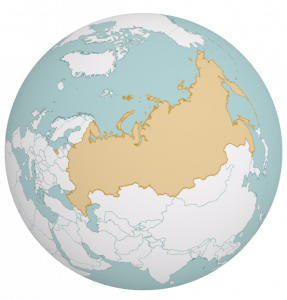 Russia : The hardening of positions
Russia : The hardening of positions
On October 7, the Nobel Peace Prize was awarded to the NGO Memorial in Oslo, Norway, an organization which works for the recognition of war crimes committed during the Stalin period and for the respect of human rights in contemporary Russia and which was dissolved in December 2021 by the regime of Vladimir Putin. This prize was also awarded to Ales Bialiatski, political opponent of the regime of Alexander Lukashenko in Belarus, and to the Centre for Civil Liberties in Ukraine.
Proof of rising tensions between Russia and “Western” countries, on October 1, the Russian government restricted road traffic in Russia for European companies as well as those from Norway, Ukraine and Great Britain, from October 10 October to December 31, with the exception of beverages and some foodstuffs such as meat and milk. Similarly, the next day, the Russian submarine Belgorod derived from the Oscar II class launched in 2019, capable of launching the nuclear-powered ocean drone Status-6 Poseidon and likely to carry a thermonuclear charge of 2 to 100 Megatons, carried out an exit in the Baltic Sea.
On October 12, the FSB announced the arrest of 8 suspects in the explosion of the Kerch bridge linking Russia to Crimea which had occurred on October 8, while designating “the Main Intelligence Directorate of the Ukrainian Defence Ministry, its chief Kyrylo Budanov, his employees and his agents” as the organizers of the explosion. On the same day, the General Assembly of the United Nations asked Russia, by means of a non-binding resolution adopted by 143 votes for, 5 against and 35 abstentions, to reverse its “illegal annexation attempt” of the four Ukrainian territories.
The Russian Ministry of Defence on October 18 denied any use of Iranian-made suicide bombers in Ukraine that had intervened the day before and on October 19 Russia’s deputy representative to the UN, Dmitry Polianski, threatened the institution of an end to cooperation between its General Secretariat and Russia in the event of an investigation implicating the latter in this affair. While on October 20, the spokesperson for the Russian Foreign Ministry, Maria Zakharova, warned NATO against the aid given to Ukraine by its members, explaining that these various contributions of ammunition, intelligence, training and various resources, for a value of 42.3 billion dollars of aid provided to Ukraine from NATO countries, of which 28.3 billion, for the USA alone since February 24, 2022, were only bring NATO closer to “a dangerous line of direct armed confrontation with Russia“, Russian Defence Minister Sergei Shoigu told his American, French, British and Turkish counterparts on October 23 of his fears of the use of a “radiological bomb” by Ukraine on its own territory, a position reaffirmed the next day by Russian Foreign Minister Sergei Lavrov. On October 24, it was Vladimir Putin who called the next decade “the most dangerous, most important, most unpredictable” since the end of the Second World War, during the International Discussion Club Valdai.
While Vladimir Putin received the President of Guinea Bissau and ECOWAS on October 25 to discuss, among other things, the next Russia-Africa Summit in July 2023, and the African leader met his Ukrainian counterpart the next day with whom they discussed the issue of food security and the export of Ukrainian wheat, Russia finally decided on October 29 to suspend the agreement reached on grain exports from Ukrainian ports following a drone attack that targeted its ships in Crimea, which which it blamed on Great Britain and Ukraine.
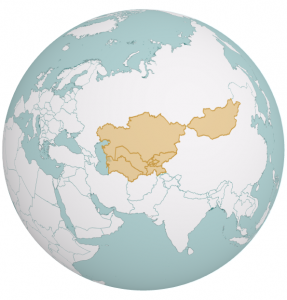 Central Asia: Border issues in Kyrgyzstan and diversification of international partnerships of Central Asian countries.
Central Asia: Border issues in Kyrgyzstan and diversification of international partnerships of Central Asian countries.
A bill of the Kyrgyz Parliament was discussed on October 3 which provides for the possibility of supplying weapons to the inhabitants of the border districts with Tajikistan, despite the signing of a border stabilization protocol signed on September 25 with the neighbouring Tajikistan and which followed the intense clashes between border guards between 14 and 17 September. On October 19, Kyrgyzstan and Tajikistan accused each other of destabilizing the border: denunciations of the positioning of heavy weapons or violation of airspace. Kyrgyzstan thus renewed its call for the mediation of Russia and the CSTO, recalling that the documents allowing the clear delimitation of the border had been in Moscow since the end of the Soviet period.
As of October 9, the military exercises of the CSTO “Indestructible Brotherhood 2022” planned on its territory and also involving Tajikistan were canceled, while Kyrgyz parliamentarians would have opposed the latter’s participation. On October 15, at the Central Asia-Russia Summit held in Astana, Tajik Head of State Emomali Rahmon said, “We want respect. Nothing else, respect“, accusing the persistence of a policy of dependence on Russia since the Soviet period and exploitation of its raw materials, while on the same day the Russian Minister of Defence denounced the involvement of two Tajik nationals in a terrorist attack on a military training ground near Belgorod. Belarusian President Alexander Lukashenko visited Tajikistan on October 11 and 12 to sign 10 new cooperation documents.
Kyrgyzstan’s border problems also concern its relations with Uzbekistan: a draft agreement on moving the border caused numerous protests from October 23 over the Kyrgyz water reservoir of Kempir-Abad, which resulted in numerous searches and arrests by the security services citing uprisings aimed at overthrowing the government. These protest movements are also part of a context of preparation of a bill aimed at tighter control of independent media and for which representatives of newspapers and representatives of civil society appealed on 20 October to the mediator Atyr Abdrakhmatova to ask the Venice Commission for its opinion.
In Kazakhstan, the Amamat party nominated current President Kassym-Jomart Tokaiev on October 6 as a candidate for the presidential elections scheduled for November 20 and announced for the beginning of September. On October 27, an amnesty law for participants in the January 2022 demonstrations was adopted by the Kazakh Senate: cancellation or reduction of sentences except for the organizers.
It should be noted that in October Turkmenistan blocked about a third of all IP addresses in the world, with Deputy Prime Minister and Foreign Minister Rashid Meredov recently announcing the creation of an autonomous national digital network , which no other country in the world than North Korea has to date.
The end of October was marked by two major international events, namely the 15th South Korea-Central Asia Cooperation Forum in Busan on October 25 and the 1st regional meeting between Central Asian Heads of State and the President of the European Council Charles Michel on 27 October.
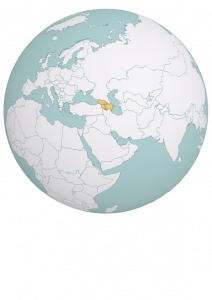 South-Caucasus : Will the EU observation mission bear fruit in Karabakh?
South-Caucasus : Will the EU observation mission bear fruit in Karabakh?
The beginning of October opened with the broadcast of horrifying videos of probable “war crimes” by the Azerbaijani army against Armenian prisoners and the discovery of a mass grave of Azerbaijani soldiers dating from the First Karabakh War, then the quadripartite meeting in Prague, on the sidelines of the 1st European Political Community, between the leaders of Azerbaijan, Armenia, France and the European Council which also gave rise to the first meeting between the Turkish President and the Armenian Prime Minister. This meeting led to the acceptance by Azerbaijan of the deployment of an EU observation mission along the border on the Armenian side for a period of two months which was effectively deployed from October 27. Meanwhile, the OSCE announced on October 19 the dispatch of a “needs assessment team to Armenia” from October 21 to 27, at the invitation of the Armenian government and without consulting the Azerbaijani side which strongly criticized this measure.
Thus, 27 and 28 October were the scene of intense diplomatic activity in the region: meeting with a French delegation from the Ministry of Defence, meeting of the OSCE mission with the Deputy Minister for Foreign Affairs and CSTO emergency session in Armenia; meeting of heads of diplomatic missions of European Union countries, visit of the Deputy Secretary General of the United Nations and the Vice-President of the Government of the Russian Federation to Azerbaijan. This notable development in the process of resolving the Armenian-Azerbaijan conflict was also marked by stormy exchanges between France and Russia, the former denouncing an instrumentalization of the conflict by Russia which allegedly “played the game of Azerbaijan with the complicity of Turkey” and Russia denouncing a “demonization” and an “attempt to transfer the logic of confrontation from Ukraine to other parts of the post-Soviet space”.
While the UN vote against the “annexation” of Ukrainian regions by Russia resulted in a vote in favour (Georgia), an abstention (Armenia) and an absence (Azerbaijan) in the South Caucasus, relations between the Russia and the protagonists of the Karabakh conflict were marked by the prevention of a Russian parliamentarian from returning to Armenia for his anti-government positions, and a note from the Azerbaijani ambassador to Russia about Pervy Kanal’s broadcast judged “contrary to the spirit of strategic partnership and alliance interaction” between the two countries.
Several events testified to the strengthening of international alliances of these two countries: the joint military exercises “Caucasus Eagle 2022” between Georgia, Azerbaijan and Turkey began on October 11 and on October 24, Azerbaijani President Ilham Aliyev was visiting Georgia to deepen with his counterpart the regional energy transport projects: export of a volume of 20 billion cubic meters of gas to Europe in 2027 via two pipelines: the Baku-Tbilisi-Ceyhan (BTC) and that of Baku-Soupsa, export of Azerbaijani electricity via Georgia (10 Gigawatts of renewable energy from Karabakh, 157 Gigawatts from the Caspian Sea), as well as the Transcapian International Transport Road project (TITR = China – Kazakhstan – Caspian – Azerbaijan – Georgia linking either Europe via the Black Sea or Turkey). This last project was discussed during the Conference on Interaction and Confidence Building Measures in Asia (CICA) on October 13 where the Azerbaijani leader strongly promoted the “middle corridor” of which the ” Zanguezour corridor” categorically rejected by Armenia.
For his part, Armenian Defense Minister Suren Papikian was visiting India, its main arms supplier since the end of the “44-day war”, on October 18 where he attended the conference of ministers of Defence under the “Indian Ocean Region and Partners” format the following day. On the 25th and 26th, Armenian Foreign Minister Ararat Mirzoyan was visiting the Vatican.
It should be noted that Ruben Vardanian, a businessman of Armenian origin who renounced Russian nationality last summer and settled in “Nagorno-Karabakh” to “support the security of Artsakh” announced on October 20 to accept the proposal made on October 4 by the “President of Nagorno-Karabakh”, Arayik Haroutiounian, to appoint him “Minister of State”.
A two-and-a-half-hour trilateral meeting between the Russian, Armenian and Azerbaijani leaders took place in Sochi on October 31 following which the two sides took the decision to “refrain from using force or the threat of the force“.
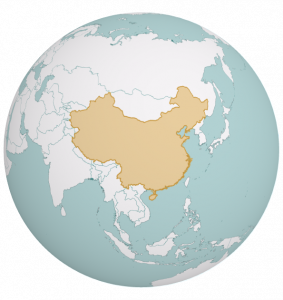 China : Chinese CP Congress and game of alliances against a backdrop of rivalry with the United States.
China : Chinese CP Congress and game of alliances against a backdrop of rivalry with the United States.
Regarding the war in Ukraine, China contented itself on October 10 with a call for de-escalation following the attack on the Kerch bridge in Crimea by the voice of the spokesperson of the Chinese Ministry of Foreign Affairs, Mao Ning, the Russian government welcoming the “neutrality” of the Chinese partner.
Indeed, Chinese President Xi Jinping was rather busy this month with the 20th Congress of the CCP between October 16 and 22, which unsurprisingly allowed his re-election as head of the country on October 23, and on the eve which 4 Communist Party cadres were disciplined for wrongdoing, amid a media campaign praising the achievements of the previous term and increased internet censorship following the October 13 protests at Beijing’s Sitong Bridge. Between October 26 and 30, the CCP’s National People’s Congress met to appoint new senior government officials, a transition to more radical politics with the arrival of Li Qiang as Prime minister and number 2 of the party, the composition of the Politburo bringing together Cai Qi, Li Xi and Ding Xuexiang but also the former head of the anti-corruption body Zhao Leji and the face of Chinese ideology Wang Huning. Appointments marked by the forfeiture of Hu Chunhua, previously considered one of Xi Jinping’s successors, and the forced exit from the party meeting of former President Hu Jintao who had expressed his disagreement with the content of official documents.
Several countries have shown a rapprochement with China this month as shown by the Solomon Islands’ refusal on October 4 of an agreement with the United States and whose clauses made “indirect” reference to China, or the negotiations initiated by Sri Lanka, announced by its president on October 6, concerning a purchase of its debt by China. Similarly, Saudi Arabia, China’s main supplier of hydrocarbons, assured him of its “willingness to cooperate to maintain the stability of the global hydrocarbon market“, a few weeks after the announcement by Saudi Prince Mohamed bin Salman of to want to lower the production of hydrocarbons by 2 million barrels per day, which represents a diplomatic setback for the United States which already suffers from galloping inflation, while China has reminded it of its “active support for the procedure of adhesion to a new member in the [group of] BRICS”, of which she is chairing this year.
For its part, the Philippines finalized on October 14 with the United States the joint military training that the two armies were conducting in Capas, operation KAMANDAG which began on October 3. This Sino-American competition in the Indo-Pacific zone was also exemplified this month by the planning for enhanced security cooperation between Japan and Australia involving sustained information sharing on China’s actions and movements, announced on October 19 by the Japanese ambassador in Canberra ahead of the October 22 meeting between the Prime Ministers of the two countries, and which was the subject of criticism from the Chinese Foreign Minister on October 24 declaring that “the Asia-Pacific region [did] not need military blocs and even less groupings that could provoke clashes between blocs or stir up a new cold war”.
This rivalry between the world’s two leading powers is also playing out in the field of technology: the US “trade watch” has added 31 Chinese semiconductor companies to its blacklist on October 11, a decision that is part of the US strategy to intensify national competitiveness in the field. A few days later, the US Federal Communications Commission (US FCC) decided to ban equipment sourcing from companies Huawei and ZTE, and in response, Chinese high-tech equipment manufacturer Naura Technology suspended employees from American nationality working on the development of its equipment. The Taiwanese semiconductor manufacturer TSMC has obtained a waiver to be able to continue its activities in China for another year. In addition, the report of the 20th congress of the PCC testifies to China’s nuclear ambitions in terms of deterrence compared to other powers, which constitutes a break with the 19th congress of 2017. According to certain reports, this deterrence would extend to the space and cyber warfare through the use of artificial intelligence technology, big data and unmanned combat platforms.
It should be noted that on October 19 the Ministry of Defence of Great Britain claimed that some of its former pilots were recruited to help the Chinese army and that on October 24 two Chinese nationals were accused of espionage and attempted bribery by US courts.
Recall that on October 6, the United Nations Human Rights Council rejected the call for debate on the report on Xinjiang by 19 votes against, 17 for and 11 abstentions.




